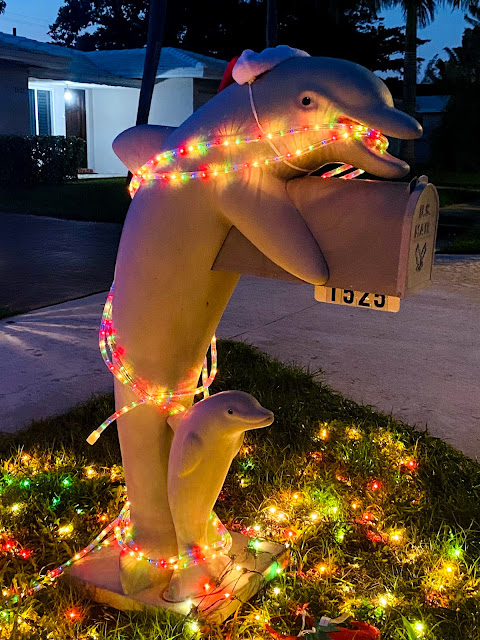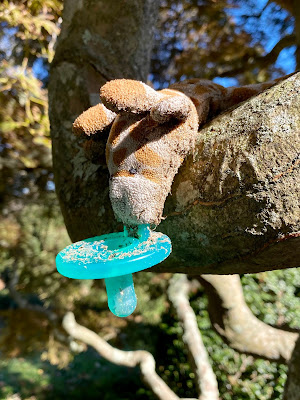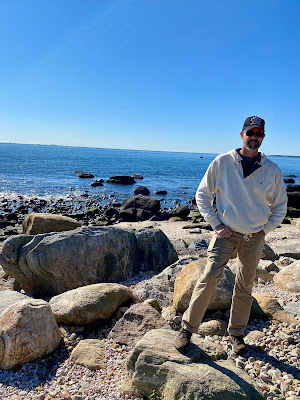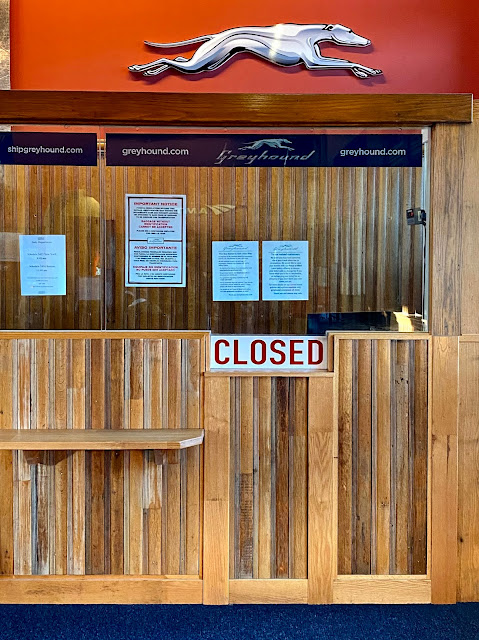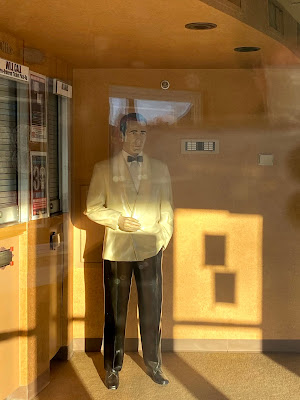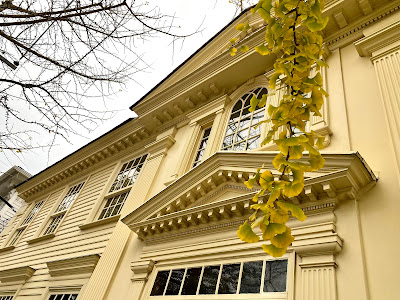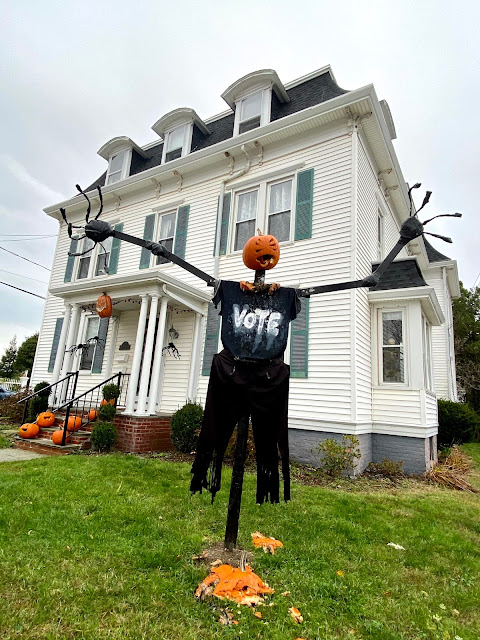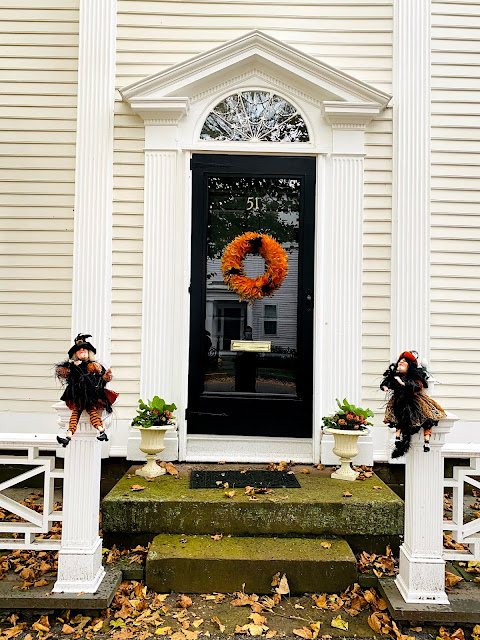Randy invited us to New London for "Halloween In Exurbia." He's standing in front of his new house--almost completely furnished online--with Andrew on Saturday morning.
Don't we look a little Yankee Gothic in the back yard? Did the neighbors--who include a Fire Batallion Commander--think we were priests? Or attending a super spreader event?
We toured Seaside State Park, a former sanitarium for tubercular children in neighboring Waterford. Cass Gilbert designed it in the Tudor Revival style. He's more famous for the Woolworth Building and the US Supreme Court.
The Long Island Sound sparkled. We could see for miles and miles.
I do loves me a weather vane.
Ophelia left behind a message inside a covered bridge.
The cutting garden had been cut, but the park retained its essential charm. Someone had left behind a stuffed animal in September, too. Maybe it's a thing.
Oh look! A sprite.
We walked on the rocky beach among thousands of shells, about to be ground into sand.
After some hearty pea soup and garlic bread back at Randy's, we toured downtown New London. The hipsters have colonized Bank Street with Hygienic Art.


Are You Experienced?

A monument near the train station commemorates the city's war dead. It's been around for plenty of 'em. Revolutionary War hero Nathan Hale taught in New London before he became a spy for the Continental Army. The Brits hung him at age 21. And you thought Teach for America was demanding!
A lot of whales died in New London's heyday.
Time almost seems to have stopped inside the train station.
State Street is the main drag, with commerce old and new.
An historic
movie theater with a wittily ambiguous marquee: "
Coming Soon: Close Encounters of the November 3 Kind."
The pandemic has restricted business to white jacketed mannequins.
A solidly constructed library with incredible stone work.
A kitty (?) peered out from a memorial plaque across the street.
Looking back towards the harbor.
The Thames's mostly industrial riverfront hasn't been developed, perhaps because the train tracks hug it.
We meandered back to the parking lot where we left the cars.
Curtis, Randy's first four-footed visitor, was happy to see us.
I paged through Randy's collection of
After Dark magazines.
Iggy Pop wasn't who I expected to find, that's for sure!
We celebrated Randy's birthday a night early with an appropriately decorated confection from
You Take the Cake.
Randy enjoyed the sightseeing as much as we did on Sunday. He hadn't been to Stonington since the last 70s, when he lived with his first boyfriend in New London. Really, really great residential architecture--I'm pretty sure that "charming" is a zoning requirement. Andrew thought
Stepford Wives likely populated the neighborhood.

For whom do Stepford Wives cast their vote?
Randy posed with his birthday posse on the other side of that cannon, probably last fired more than two centuries ago. Sounds like me.
I'd almost forgotten it had been Halloween the night before. On a Blue Moon, no less
Another weather vane on a rather tall house. Note the fancy recycling bags.
Door knockers are a thing, too.
The simplicity of this chapel is almost Puritan.
Another architecturally distinctive library!
But the spear fisherman made my day. Those are
tautog he's hoisting. They put up quite a struggle when you catch them with a pole.
Ugly, but tasty with dense, white meat.
Look closely at the left, in between the angle formed by the jetty and sand, and you'll see him in the water. He and his buddy shot their spears in water around ten feet deep.

